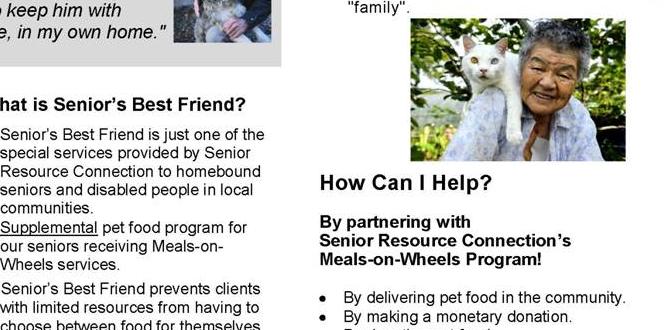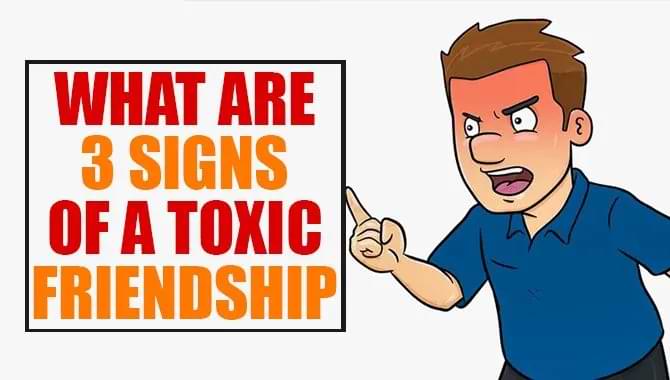Ready for online dating success? Discover proven strategies to find meaningful connections. This guide offers simple, actionable steps for women to navigate online dating confidently, build genuine relationships, and achieve lasting happiness. Let’s get started!
Best Online Dating Success For Women: Proven Strategies
Are you feeling a bit lost in the world of online dating? You’re not alone! Many women find it challenging to make genuine connections in the digital space. It can feel like a crowded marketplace, and it’s hard to know where to start or how to stand out. But with the right approach, online dating can be a wonderful way to meet amazing people and find the relationship you’re looking for. We’re here to guide you through it, step by step, with easy-to-follow strategies that really work. Get ready to feel more confident and find success!
Why Online Dating Can Be Tricky (And How to Fix It!)
Online dating offers a vast pool of potential partners right at your fingertips. This accessibility is fantastic, but it also brings challenges. Sometimes, profiles don’t tell the whole story, conversations fizzle out, or you find yourself going on dates that just don’t lead anywhere. This can be frustrating and make you question if online dating is even worth the effort. The good news is that by understanding these common pitfalls and adopting smart strategies, you can significantly boost your chances of success. We’ll focus on making your online dating journey enjoyable and effective, helping you find those valuable connections.
Step 1: Crafting Your Winning Online Dating Profile
Your profile is your digital first impression. Think of it as your personal billboard, inviting the right people to get to know you better. A well-crafted profile is the foundation of online dating success. It’s about showcasing your authentic self in a way that’s appealing and clear.
Choosing the Right Photos: Your Visual Story
Photos are crucial. They are often the first thing people see and can make a big difference in attracting attention. Aim for a mix of photos that tell a story about your life and personality.
- Variety is Key: Include a clear, smiling headshot as your main photo. Then, add photos of you engaging in hobbies, with friends (where you’re clearly identifiable), doing activities you love, and perhaps a full-body shot.
- Quality Matters: Use well-lit, clear photos. Avoid blurry, grainy, or heavily filtered images. Natural light is your friend!
- Show, Don’t Just Tell: If you love hiking, include a picture of you on a trail. If you’re a foodie, a picture of you enjoying a meal or at a cooking class can be great.
- Authenticity Wins: Recent photos are best. Don’t present an outdated version of yourself.
- Group Shots Carefully: If you include a group photo, make sure it’s obvious which one is you. It’s often better to let your solo shots shine.
Writing Your Bio: Let Your Personality Shine
Your bio is where you can show off your personality, interests, and what you’re looking for. Keep it positive, engaging, and honest.
- Be Specific and Engaging: Instead of “I like to travel,” try “I love exploring new cultures and dream of visiting Japan.” Or instead of “I like movies,” say “Looking for someone to join me for indie film nights or dive into classic Hollywood.”
- Highlight Your Passions: What truly excites you? Mention your hobbies, career interests, or causes you care about. This gives potential matches something to connect with.
- Keep it Concise and Readable: While you want to be informative, avoid long, rambling paragraphs. Use bullet points if it helps break up text.
- Inject Humor (if it’s natural): A lighthearted, witty comment can make your profile memorable. But don’t force it if humor isn’t your strong suit.
- Be Clear About What You’re Looking For: Are you seeking a serious relationship, casual dating, or new friendships? Stating this upfront can save everyone time and set expectations.
- Ask a Question: End your bio with a lighthearted question to encourage messages. For example, “What’s the best book you’ve read recently?” or “If you could travel anywhere tomorrow, where would it be?”
Here’s a quick look at what makes a good bio:
| Good Bio Elements | Less Effective Elements |
|---|---|
| Specific interests (e.g., “avid baker,” “volunteer at animal shelter”) | Vague statements (e.g., “likes to have fun,” “loves to travel”) |
| Positive and upbeat tone | Negativity, complaints, or demands |
| Clear indication of what you’re seeking (e.g., “hoping to find a long-term partner”) | Ambiguity about intentions |
| A conversation starter or question | A profile that feels like a closed book |
| Authentic voice that reflects your personality | Generic phrases or clichés |
Step 2: Choosing the Right Dating Platform
Not all dating apps and websites are created equal. Each platform has a different focus, user base, and vibe. Finding the one that aligns with your goals is essential for success.
Understanding Different Platforms
- For Serious Relationships: Websites like eHarmony and Match are known for their in-depth profiles and algorithms designed to find compatible partners for long-term commitment. They often attract users who are serious about finding a partner.
- For Broad Appeal & Variety: Apps like Bumble and Hinge are popular for their user-friendly interfaces and diverse user bases. Bumble empowers women to make the first move, which can create a more comfortable experience. Hinge focuses on “designed to be deleted” and encourages more thoughtful profiles.
- For Niche Communities: If you have specific interests or demographics you’re looking for, consider niche dating sites or apps. Examples include ChristianMingle (for Christians), Jdate (for Jewish singles), or The League (for professionally ambitious individuals).
- For Casual Dating: Apps like Tinder generally have a reputation for more casual encounters, though serious relationships can also emerge.
Factors to Consider:
When selecting a platform, think about:
- Your Goals: Are you looking for a marriage-minded partner, casual dating, or new friendships?
- User Base: Which platforms have a significant number of users in your age range and geographic area?
- Features: Do you prefer detailed questionnaires or quick swiping? Do you want video calls or in-app messaging features?
- Cost: Many platforms offer free basic access but require subscriptions for premium features. Evaluate if the cost is worth it for you.
According to a study by Pew Research Center, online dating is a common way for people to meet and has become increasingly accepted as a way to find partners. About 54% of U.S. adults have used a dating site or app at some point. Women, however, report having more negative experiences on these platforms compared to men, highlighting the importance of strategic use and clear expectations.
Step 3: Engaging in Meaningful Conversations
Once you’ve matched with someone, the real work begins – connecting through conversation. This is where you move from a profile picture to a real person. The goal is to build rapport, understand each other, and gauge compatibility.
Starting the Conversation
- Reference Their Profile: This is the easiest and most effective way to start. Did they mention a love for travel? Ask about their favorite trip. Do they have a pet? Compliment your furry friends! “I saw you’re a talented cook! What’s your go-to dish to impress?” is much better than “Hey.”
- Ask Open-Ended Questions: These encourage more than a yes/no answer. Instead of “Do you like your job?”, ask “What’s the most rewarding part of your job?”
- Be Playful and Light: Keep the initial messages fun and easygoing.
- Avoid Generic Openers: “Hi,” “Hello,” and “How are you?” are forgettable. Put a little more thought into it.
Keeping the Conversation Flowing
Don’t let the chat die out after the first message. Keep the momentum going by:
- Asking Follow-Up Questions: Show you’re listening and interested by asking for more details about what they’ve shared.
- Sharing About Yourself: Conversations are a two-way street. Respond to their questions and offer your own insights and experiences.
- Finding Common Ground: Look for shared interests, values, or experiences. These are excellent building blocks for a connection.
- Using Humor Appropriately: Lighthearted banter can make conversations more engaging.
- Knowing When to Move On: If conversations are consistently one-sided, or if there’s a lack of effort from their end, it might be a sign they aren’t as interested or compatible.
Knowing When to Suggest a Date
The goal of online conversation is to eventually meet in person. Don’t spend weeks or months just texting. A good rule of thumb is to suggest meeting after you’ve had a few engaging back-and-forth conversations, say about 5-10 messages each, or within a week or two.
- Read the Room: If the conversation feels natural, flows well, and there’s mutual interest, it’s a good time to suggest meeting.
- Make a Specific Suggestion: Instead of “We should meet sometime,” try “I’ve really enjoyed chatting with you. Would you be interested in grabbing a coffee at [Local Cafe Name] next week?”
- Suggest a Low-Pressure First Date: Coffee, a casual drink, or a walk in the park are excellent first-date ideas. They are short, easy to exit if needed, and allow for conversation.
Here’s a comparison of conversation styles:
| Engaging Conversation | Struggling Conversation |
|---|---|
| Asks thoughtful, open-ended questions. | Asks closed questions or only “yes/no” questions. |
| Actively listens and responds to details shared. | Appears distracted or doesn’t recall previous conversation points. |
| Shares personal anecdotes and opinions. | Gives brief, unrevealing answers. |
| Shows enthusiasm and genuine interest. | Rushed or passive communication style. |
| Suggests moving the conversation offline (e.g., a date). | Keeps communication exclusively online for an extended period without suggesting a meet-up. |
Step 4: Mastering the First Date
The first date is a golden opportunity to see if the chemistry you felt online translates into real life. Focus on being present, open, and yourself.
Preparation is Key
- Plan Your Outfit: Choose something you feel confident and comfortable in, appropriate for the venue.
- Research the Venue: If meeting at a restaurant or bar, briefly check out their menu or ambiance online.
- Have Conversation Starters Ready: While you don’t want to script it, have a few general topics or questions in mind about their interests, hobbies, or recent experiences, beyond what you discussed online.
- Confirm Details: A quick text earlier in the day to confirm time and place can be appreciated.
During the Date: Be Present and Authentic
This is your time to connect!
- Put Your Phone Away: Give your date your undivided attention. This is perhaps the most crucial piece of advice for a good first date.
- Listen More Than You Talk: Show genuine interest by actively listening to what they say. Ask clarifying questions.
- Be Yourself: Authenticity is attractive. Don’t try to be someone you’re not. Let your personality shine through.
- Share Appropriately: While listening is important, don’t forget to share about yourself. The goal is mutual understanding. Avoid oversharing too much personal history or sensitive topics on a first date.
- Maintain Positive Body Language: Smile, make eye contact, and face your date.
- Keep it Light and Positive: First dates are for getting to know each other. Avoid heavy topics like exes, past traumas, or complaining extensively about your life. The positive psychology movement suggests focusing on strengths and appreciation can foster better connections.
Ending the Date
How you wrap up the date can leave a lasting impression.
- Be Clear About Your Interest: If you had a good time and want to see them again, say so! “I had a really great time tonight. I’d love to do this again soon.”
- If You’re Not Interested: Be polite but clear. “It was nice meeting you. I don’t think we’re the best match, but I wish you all the best.”
- The Bill: In most modern dating scenarios, splitting the bill or taking turns offering to pay is a good approach. It shows consideration and equality.
Step 5: Navigating Post-Date Follow-Up and Future Steps
The date is over, but the journey to a potential relationship continues. How you handle the follow-up can impact whether this connection blossoms.
The Post-Date Message
Send a message within 24 hours of the date. Whether it’s a “thank you” for a good time or a more enthusiastic message if you’re keen to see them again, timing and tone matter.
- If You Had a Great Time: “I had such a wonderful time with you tonight! I’d love to see you again soon. How about [suggest another activity] next week?”
- If It Was Okay, But You’re Open: “Thanks for a fun evening! I enjoyed our conversation. Let me know if you’d like to get together again sometime.”
- If You’re Not Interested: You can choose to send a polite message, or if you prefer, simply don’t initiate further contact. Ghosting is generally discouraged as it can be hurtful, but sometimes a lack of communication is the clearest signal.
Evaluating Compatibility and Moving Forward
After a few dates, start to think about:
- Shared Values: Do your core beliefs and life philosophies align? This is crucial for long-term compatibility.
- Communication Style: Can you comfortably discuss your needs and feelings with them? Do they listen and respond effectively?
- Emotional Connection: Do you feel comfortable, understood, and supported? Is there a growing sense of intimacy?
- Future Goals: Do your visions for the future (career, family, lifestyle) align, or at least complement each other?
- Respect: Do you feel genuinely respected for who you are?
According to research from the Gottman Institute, effective communication and conflict resolution are cornerstones of healthy, long-lasting relationships. They emphasize that partners who can navigate disagreements respectfully are more likely to stay together. This principle applies to the early stages of dating as well – how you both handle gentle differences of opinion can be very telling.
Knowing When to Take a Break or Move On
Online dating can be a marathon, not a sprint. It’s okay to feel overwhelmed or discouraged at times.
- Recognize Burnout: If you’re feeling negative about dating, constantly disappointed, or simply exhausted by the process, it might be time for a break. Step away for a week or two, focus on yourself, and then re-evaluate.
- Trust Your Gut: If something feels off about a person or a situation, trust that feeling. You don’t need concrete proof to decide someone isn’t the right fit for you.
- Don’t Settle: It’s better to be single and happy than in a relationship that makes you unhappy. Use your experience to refine what you’re looking for.
Tips for Staying Safe Online and In Person
Your safety and well-being are paramount. Be smart and aware when you’re dating online and offline.
Online Safety Measures
- Protect Personal Information: Don’t share your full name, address, workplace, or financial details with someone you’ve just met online. Wait until you’ve established a strong level of trust.
- Be Wary of “Too Good to Be True”: Scammers often create elaborate stories to gain your trust and eventually money. If someone is asking for money, avoid them.
- Guard Your






